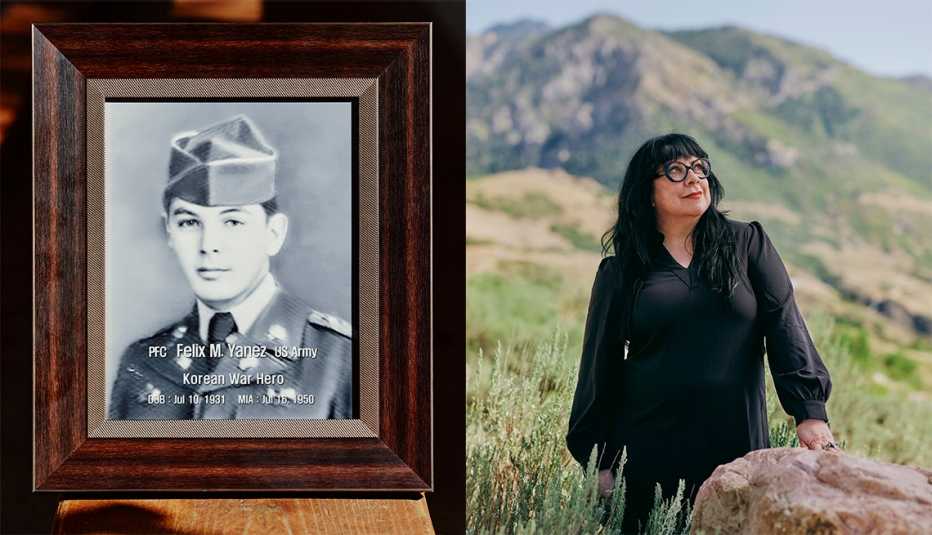Staying Fit


When I was growing up, my mother would often talk about him. She would say, “I had a brother who died in the Korean War.” His name was Felix Yanez and his remains were never found. She’d tell these stories and, when I was young, I didn’t have interest. My mom wanted to go to Hawaii because she heard that his name was on the wall at the Punchbowl (the National Memorial Cemetery of the Pacific, a burial ground for American soldiers). So, in 1999, I took her and we found his name.
Eleven years ago, my mother received an invitation from the Defense POW MIA Accounting Agency to one of their seminars. They have these meetings in different cities every year, and they are free. You can go and they’ll tell you what they’re doing to try to locate your family member’s remains. I took my mother, and that is when it got inside me. This was not just a story. This was a human being that was my blood. (There are still over 7,000 Americans who served in Korea who never returned and whose remains have never been recovered.)


AARP Membership— $12 for your first year when you sign up for Automatic Renewal
Get instant access to members-only products and hundreds of discounts, a free second membership, and a subscription to AARP the Magazine.
I’m scared to death of public speaking. But in these meetings, I get up in front of 500 or 600 people and I say his name. Felix Yanez. One day, after speaking at a meeting, two people came up to me afterwards. They said, “We knew him.” The more I talked about him, the more I learned about him.
My uncle came from Douglas, Arizona. When he was young, he played guitar and sang mariachi music. He was the oldest of six children and my mom remembers that he was a protector, that he took care of her. Soon after World War II, he and some friends dared each other to join the Army. They weren’t old enough and lied about their ages. He got sent to Japan and we believe he had a girlfriend there. After he went missing, my grandmother received a letter in Japanese with a picture of a woman. My grandmother had no idea how to get it translated and it has since been lost. Maybe my uncle married? Could he have even had a child?
On July 3, 1950, he was sent to Korea. On June 25, he was involved in a battle near the Kum River. He went missing just days past his 19th birthday. His family was notified on July 25 that he had been killed. Still, the family struggled. My grandmother kept asking for his remains. For years the family had no way of knowing — could he still be alive? Could he be in a prison somewhere? In February 2022, the military contacted me asking for DNA.

































































More From AARP
Meet the Residents of the Armed Forces Retirement Home
A little-known haven in D.C. is home to 200 former enlisted men and women9 Fitness Tips for Veterans in the New Year
You can achieve your goals without breaking the bankTo the Rescue: Saving Animals From Disaster Zones
For retired entrepreneur and veteran Michael Merrill, helping pets in peril around the world gives life meaning
Recommended for You